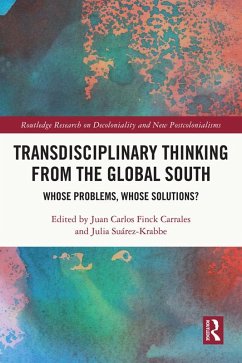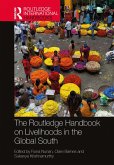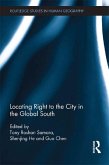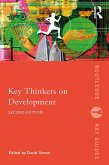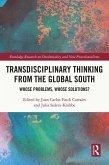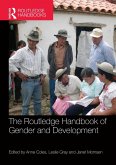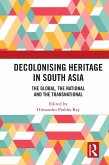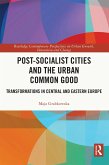Transdisciplinary Thinking from the Global South (eBook, PDF)
Whose Problems, Whose Solutions?
Redaktion: Finck Carrales, Juan Carlos; Suárez-Krabbe, Julia
42,95 €
42,95 €
inkl. MwSt.
Sofort per Download lieferbar

21 °P sammeln
42,95 €
Als Download kaufen

42,95 €
inkl. MwSt.
Sofort per Download lieferbar

21 °P sammeln
Jetzt verschenken
Alle Infos zum eBook verschenken
42,95 €
inkl. MwSt.
Sofort per Download lieferbar
Alle Infos zum eBook verschenken

21 °P sammeln
Transdisciplinary Thinking from the Global South (eBook, PDF)
Whose Problems, Whose Solutions?
Redaktion: Finck Carrales, Juan Carlos; Suárez-Krabbe, Julia
- Format: PDF
- Merkliste
- Auf die Merkliste
- Bewerten Bewerten
- Teilen
- Produkt teilen
- Produkterinnerung
- Produkterinnerung

Bitte loggen Sie sich zunächst in Ihr Kundenkonto ein oder registrieren Sie sich bei
bücher.de, um das eBook-Abo tolino select nutzen zu können.
Hier können Sie sich einloggen
Hier können Sie sich einloggen
Sie sind bereits eingeloggt. Klicken Sie auf 2. tolino select Abo, um fortzufahren.

Bitte loggen Sie sich zunächst in Ihr Kundenkonto ein oder registrieren Sie sich bei bücher.de, um das eBook-Abo tolino select nutzen zu können.
This book promotes constructive and nuanced transdisciplinary understandings of some of the critical problems that we face on a global scale today by thinking with and from the Global South. It is engaged in transmodernizing, pluriversalizing, decolonizing, queering, and/or posthumanizing thinking and practice.
- Geräte: PC
- ohne Kopierschutz
- eBook Hilfe
- Größe: 7.94MB
Andere Kunden interessierten sich auch für
![The Routledge Handbook on Livelihoods in the Global South (eBook, PDF) The Routledge Handbook on Livelihoods in the Global South (eBook, PDF)]() The Routledge Handbook on Livelihoods in the Global South (eBook, PDF)46,95 €
The Routledge Handbook on Livelihoods in the Global South (eBook, PDF)46,95 €![Locating Right to the City in the Global South (eBook, PDF) Locating Right to the City in the Global South (eBook, PDF)]() Locating Right to the City in the Global South (eBook, PDF)54,95 €
Locating Right to the City in the Global South (eBook, PDF)54,95 €![Key Thinkers on Development (eBook, PDF) Key Thinkers on Development (eBook, PDF)]() Key Thinkers on Development (eBook, PDF)27,95 €
Key Thinkers on Development (eBook, PDF)27,95 €![Transdisciplinary Thinking from the Global South (eBook, ePUB) Transdisciplinary Thinking from the Global South (eBook, ePUB)]() Transdisciplinary Thinking from the Global South (eBook, ePUB)42,95 €
Transdisciplinary Thinking from the Global South (eBook, ePUB)42,95 €![The Routledge Handbook of Gender and Development (eBook, PDF) The Routledge Handbook of Gender and Development (eBook, PDF)]() The Routledge Handbook of Gender and Development (eBook, PDF)46,95 €
The Routledge Handbook of Gender and Development (eBook, PDF)46,95 €![Decolonising Heritage in South Asia (eBook, PDF) Decolonising Heritage in South Asia (eBook, PDF)]() Decolonising Heritage in South Asia (eBook, PDF)42,95 €
Decolonising Heritage in South Asia (eBook, PDF)42,95 €![Post-socialist Cities and the Urban Common Good (eBook, PDF) Post-socialist Cities and the Urban Common Good (eBook, PDF)]() Maja GrabkowskaPost-socialist Cities and the Urban Common Good (eBook, PDF)42,95 €
Maja GrabkowskaPost-socialist Cities and the Urban Common Good (eBook, PDF)42,95 €-
-
-
This book promotes constructive and nuanced transdisciplinary understandings of some of the critical problems that we face on a global scale today by thinking with and from the Global South. It is engaged in transmodernizing, pluriversalizing, decolonizing, queering, and/or posthumanizing thinking and practice.
Dieser Download kann aus rechtlichen Gründen nur mit Rechnungsadresse in A, B, BG, CY, CZ, D, DK, EW, E, FIN, F, GR, HR, H, IRL, I, LT, L, LR, M, NL, PL, P, R, S, SLO, SK ausgeliefert werden.
Produktdetails
- Produktdetails
- Verlag: Taylor & Francis
- Seitenzahl: 164
- Erscheinungstermin: 30. Dezember 2021
- Englisch
- ISBN-13: 9781000508079
- Artikelnr.: 62914519
- Verlag: Taylor & Francis
- Seitenzahl: 164
- Erscheinungstermin: 30. Dezember 2021
- Englisch
- ISBN-13: 9781000508079
- Artikelnr.: 62914519
- Herstellerkennzeichnung Die Herstellerinformationen sind derzeit nicht verfügbar.
Juan Carlos Finck Carrales is a Lecturer of Social Sciences and Urban Planning at Roskilde University (RUC) in Denmark. He teaches and supervises research at the International Bachelor in Social Sciences, the Bachelor in Global Humanities and the Master of Nordic Urban Planning Studies (NUPS). He also coordinates the Language Profile Program of RUC where he is responsible for the Spanish Language Profile. He is part of the Mobility, Space, Place, and Urban Studies (MOSPUS) research group. He holds a PhD degree in Social Sciences from the Program of Society, Space and Technology of RUC. His inter- and transdisciplinary research intersects the fields of Policymaking, Mobility, Decolonial Studies, and Urban and Transport Planning by making the use of ethnographic, participatory, interactive and mixed methods. He has participated in urban projects and formalization processes of transport services in Mexico City, whose outcomes have been reproduced in the media and have influenced the policymaking and regulation of the city. He is a consultant for the Integral Mobility Program of Mexico City 2020-2024. Julia Suárez-Krabbe is Associate Professor in Cultural Encounters at the Department of Communication and Arts, Roskilde University, Denmark, and Distinguished Research Associate at the Ali Mazrui Centre for Higher Education, University of Johannesburg, South Africa. Her work centers on racism, human rights, development, knowledge production, education and decolonisation in Europe and the Americas. Her latest work includes the co-authorship of the report "Stop Killing Us Slowly. A Research Report on the Motivation Enhancement Measures and the Criminalization of Rejected Asylum Seekers in Denmark" from 2018, which includes examinations of state-sanctioned racism in Danish deportation camps, and was written in collaboration with the refugee movement in Denmark. Her work additionally revolves around the ontological, epistemological and existential dimensions of decolonisation. Julia is the author of "Race, Rights and Rebels. Alternatives to Human Rights and Development from the Global South" (2016).
0. Introduction: Horizons of possibility and scientific research: whose
problems, whose solutions? 1. Globalisation in theory and practice:
Negotiating belonging in Danish higher education. 2. Transmodern philosophy
of science in the case of informal transportation in Mexico City: Local
ontology and epistemology for transport planning. 3. Decolonising global
health promotion: A quest for equity. 4. Theorizing water, shifting scales:
The space of the Himalayan Anthropocene. 5. Decolonizing gender: Witches,
nomads and the colonial rule. 6. Abyssal lines in borders, race and
knowledge: A decolonial perspective on the EU-Turkey joint action plan.7.
Over our dead bodies: The death project, egoism and the existential
dimensions of decolonisation.
problems, whose solutions? 1. Globalisation in theory and practice:
Negotiating belonging in Danish higher education. 2. Transmodern philosophy
of science in the case of informal transportation in Mexico City: Local
ontology and epistemology for transport planning. 3. Decolonising global
health promotion: A quest for equity. 4. Theorizing water, shifting scales:
The space of the Himalayan Anthropocene. 5. Decolonizing gender: Witches,
nomads and the colonial rule. 6. Abyssal lines in borders, race and
knowledge: A decolonial perspective on the EU-Turkey joint action plan.7.
Over our dead bodies: The death project, egoism and the existential
dimensions of decolonisation.
0. Introduction: Horizons of possibility and scientific research: whose
problems, whose solutions? 1. Globalisation in theory and practice:
Negotiating belonging in Danish higher education. 2. Transmodern philosophy
of science in the case of informal transportation in Mexico City: Local
ontology and epistemology for transport planning. 3. Decolonising global
health promotion: A quest for equity. 4. Theorizing water, shifting scales:
The space of the Himalayan Anthropocene. 5. Decolonizing gender: Witches,
nomads and the colonial rule. 6. Abyssal lines in borders, race and
knowledge: A decolonial perspective on the EU-Turkey joint action plan.7.
Over our dead bodies: The death project, egoism and the existential
dimensions of decolonisation.
problems, whose solutions? 1. Globalisation in theory and practice:
Negotiating belonging in Danish higher education. 2. Transmodern philosophy
of science in the case of informal transportation in Mexico City: Local
ontology and epistemology for transport planning. 3. Decolonising global
health promotion: A quest for equity. 4. Theorizing water, shifting scales:
The space of the Himalayan Anthropocene. 5. Decolonizing gender: Witches,
nomads and the colonial rule. 6. Abyssal lines in borders, race and
knowledge: A decolonial perspective on the EU-Turkey joint action plan.7.
Over our dead bodies: The death project, egoism and the existential
dimensions of decolonisation.
